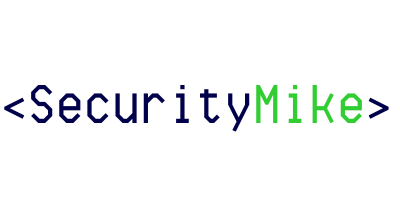Ransomware is a type of malicious software that encrypts files on a victim’s computer or network, rendering them inaccessible until a ransom is paid. Alphv BlackCat Ransomware is one such variant of ransomware that has been causing havoc in recent years. It is important for individuals and businesses to understand the threat posed by this ransomware and take necessary precautions to protect themselves.
Alphv BlackCat Ransomware is a sophisticated form of malware that infects computer networks and encrypts files, making them unusable until a ransom is paid. It typically enters a network through common methods such as phishing emails, malicious downloads, or compromised websites. Once inside the network, it spreads rapidly and encrypts files on all connected devices.
Key Takeaways
- Alphv BlackCat Ransomware is a dangerous malware that can infect your network and encrypt your files.
- The ransomware spreads through phishing emails, malicious websites, and software vulnerabilities.
- Once infected, the ransomware encrypts your files and demands payment in exchange for the decryption key.
- Not paying the ransom can result in permanent loss of data and damage to your reputation.
- To protect your network, it is important to have regular backups, a disaster recovery plan, and up-to-date security software.
How Alphv BlackCat Ransomware Infects Your Network
Alphv BlackCat Ransomware employs various methods to infect computer networks. One common method is through phishing emails, where attackers send emails disguised as legitimate messages from trusted sources. These emails often contain malicious attachments or links that, when clicked on, download the ransomware onto the victim’s computer.
Another method used by attackers is through malicious downloads. This can occur when users unknowingly download infected files from compromised websites or through peer-to-peer file sharing networks. Once the infected file is downloaded and executed, the ransomware begins encrypting files on the victim’s computer.
Social engineering tactics are also commonly used by attackers to trick users into downloading and executing the ransomware. This can include tactics such as impersonating trusted individuals or organizations, creating a sense of urgency, or using fear tactics to manipulate users into taking actions that lead to the installation of the ransomware.
It is crucial for organizations to educate their employees about these common methods of infection and raise awareness about the risks associated with clicking on suspicious links or downloading files from unknown sources. Regular training sessions and reminders can help employees recognize and avoid potential threats.
The Encryption Process of Alphv BlackCat Ransomware
Once Alphv BlackCat Ransomware infects a network, it begins the encryption process. The ransomware uses advanced encryption algorithms to lock files, making them inaccessible without the decryption key. This encryption process is typically fast and efficient, allowing the ransomware to encrypt a large number of files in a short amount of time.
Alphv BlackCat Ransomware targets a wide range of file types, including documents, spreadsheets, images, videos, and databases. This means that valuable business data, customer information, and other critical files can be compromised and rendered useless.
The impact on business operations can be severe. Without access to important files, organizations may experience disruptions in their day-to-day activities, leading to financial losses and potential reputational damage. The inability to access critical data can also hinder decision-making processes and affect the overall productivity of the organization.
The Ransom Note and Demands of Alphv BlackCat Ransomware
After encrypting the files, Alphv BlackCat Ransomware leaves a ransom note on the victim’s computer or network. This note typically informs the victim that their files have been encrypted and provides instructions on how to pay the ransom in order to obtain the decryption key.
The ransom note may also include threats or warnings about what will happen if the ransom is not paid within a certain timeframe. Attackers often use psychological tactics to create a sense of urgency and fear, pressuring victims into paying the ransom quickly.
The demands made by attackers can vary, but they typically require payment in cryptocurrency such as Bitcoin, which makes it difficult to trace the transactions. The amount of the ransom can also vary greatly, ranging from a few hundred dollars to thousands or even millions of dollars.
However, paying the ransom does not guarantee that the attackers will provide the decryption key or that the files will be restored. There have been cases where victims paid the ransom but did not receive the promised decryption key, leaving them with encrypted files and financial losses.
There are also significant risks associated with paying the ransom. By giving in to the demands of attackers, organizations may inadvertently fund criminal activities and encourage further ransomware attacks. Additionally, paying the ransom does not address the underlying security vulnerabilities that allowed the ransomware to infect the network in the first place.
Consequences of Not Paying the Ransom
Choosing not to pay the ransom can have serious consequences for individuals and businesses affected by Alphv BlackCat Ransomware. One of the most immediate consequences is the loss of data. Without access to the decryption key, encrypted files may be permanently lost, resulting in significant data loss for organizations.
The financial impact of a ransomware attack can also be substantial. In addition to potential losses from disrupted business operations, organizations may incur costs associated with investigating and mitigating the attack, restoring systems and files, and implementing additional security measures to prevent future attacks.
Furthermore, a ransomware attack can cause reputational damage to an organization. Customers and clients may lose trust in a company that has been unable to protect their data, leading to a loss of business and potential legal repercussions.
How to Protect Your Network from Alphv BlackCat Ransomware

Prevention is key when it comes to protecting your network from Alphv BlackCat Ransomware and other forms of ransomware. Implementing best practices for network security is essential in minimizing the risk of infection.
Regularly updating software and applying patches is crucial as it helps address known vulnerabilities that attackers often exploit. Outdated software can provide an easy entry point for ransomware and other malware.
Using anti-virus and anti-malware software can also help detect and block malicious files or websites. These tools can provide an additional layer of protection by scanning files and websites for known threats.
Educating employees about the risks of ransomware and the importance of safe online practices is vital. Regular training sessions and reminders can help employees recognize and avoid potential threats, such as phishing emails or suspicious downloads.
Importance of Regular Backups and Disaster Recovery Plan
Regularly backing up important files is one of the most effective ways to protect against ransomware attacks. By maintaining up-to-date backups, organizations can restore their files without having to pay the ransom.
Backups should be stored securely, preferably offline or in a separate location from the network. This ensures that even if the network is compromised, the backups remain unaffected and can be used to restore files.
Creating a disaster recovery plan is also crucial in minimizing the impact of a ransomware attack. This plan outlines the steps to be taken in the event of an attack, including isolating infected devices, notifying law enforcement, and restoring data from backups.
Testing the disaster recovery plan regularly is essential to ensure its effectiveness. By simulating different scenarios and practicing the steps outlined in the plan, organizations can identify any weaknesses or gaps in their response and make necessary adjustments.
How to Detect and Remove Alphv BlackCat Ransomware
Detecting a ransomware attack early is crucial in minimizing the damage caused by Alphv BlackCat Ransomware. There are several signs that may indicate a ransomware infection, such as slow computer performance, unusual network activity, or files with unfamiliar file extensions.
If you suspect that your network has been infected with Alphv BlackCat Ransomware, it is important to take immediate action to remove the ransomware. Disconnecting infected devices from the network can help prevent further spread of the ransomware.
Removing ransomware can be a complex process that requires technical expertise. It is recommended to seek professional help from cybersecurity experts who specialize in ransomware removal. They have the knowledge and tools necessary to safely remove the ransomware and restore affected systems.
Steps to Take After a Ransomware Attack
After a ransomware attack, there are several steps that individuals and organizations should take to mitigate the damage and prevent future attacks.
First, it is important to isolate infected devices from the network to prevent further spread of the ransomware. Disconnecting infected devices can help contain the infection and minimize the impact on other systems.
Next, it is crucial to notify law enforcement about the attack. Reporting the incident can help authorities track down the attackers and potentially prevent future attacks.
Restoring data from backups is the next step in recovering from a ransomware attack. By using clean backups, organizations can restore their files without having to pay the ransom. It is important to ensure that backups are up-to-date and stored securely to prevent them from being compromised in future attacks.
Conclusion and Final Thoughts on Alphv BlackCat Ransomware
In conclusion, Alphv BlackCat Ransomware is a dangerous form of malware that can cause significant damage to individuals and businesses. Understanding how this ransomware infects networks, encrypts files, and demands payment is crucial in protecting against it.
Taking proactive measures such as educating employees, implementing network security best practices, regularly backing up data, and creating a disaster recovery plan can help minimize the risk of falling victim to Alphv BlackCat Ransomware.
In the event of an attack, it is important to seek professional help for removing the ransomware and restoring affected systems. By following these steps and being proactive in preventing ransomware attacks, individuals and organizations can protect themselves against Alphv BlackCat Ransomware and other forms of malware.
If you’re concerned about the Alphv BlackCat Ransomware and its potential impact on your network, you may also want to read this article on the hidden threat of personal AI and how it can compromise company secrets. In this eye-opening piece by Security Mike, you’ll discover the alarming ways in which personal AI devices can become a backdoor for cybercriminals to gain access to sensitive information. Understanding this evolving threat landscape is crucial for protecting your network. Check out the article here.
FAQs
What is Alphv BlackCat Ransomware?
Alphv BlackCat Ransomware is a type of malware that encrypts files on a victim’s computer and demands payment in exchange for the decryption key.
How does Alphv BlackCat Ransomware work?
Alphv BlackCat Ransomware typically spreads through phishing emails or by exploiting vulnerabilities in software. Once it infects a computer, it encrypts files and displays a ransom note demanding payment in exchange for the decryption key.
How can I protect my network from Alphv BlackCat Ransomware?
To protect your network from Alphv BlackCat Ransomware, you should regularly update your software and operating system, use strong passwords, and educate your employees about phishing scams. It’s also important to regularly back up your data and store it in a secure location.
What should I do if my network is infected with Alphv BlackCat Ransomware?
If your network is infected with Alphv BlackCat Ransomware, you should immediately disconnect the infected computer from the network to prevent the malware from spreading. You should also contact a cybersecurity professional to help you remove the malware and recover your data.
Should I pay the ransom if my network is infected with Alphv BlackCat Ransomware?
It is not recommended to pay the ransom if your network is infected with Alphv BlackCat Ransomware. There is no guarantee that the attackers will provide you with the decryption key, and paying the ransom only encourages them to continue their criminal activities.

